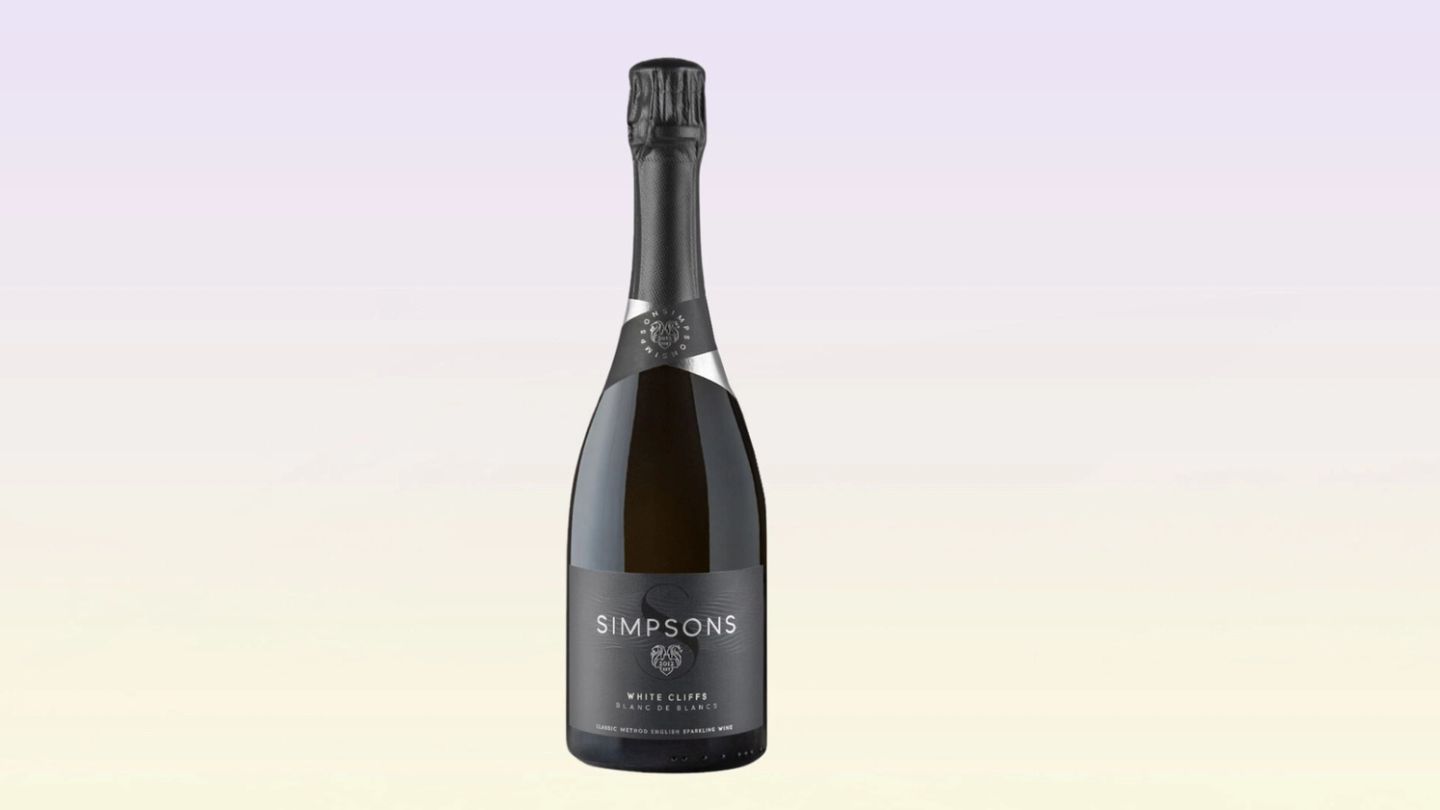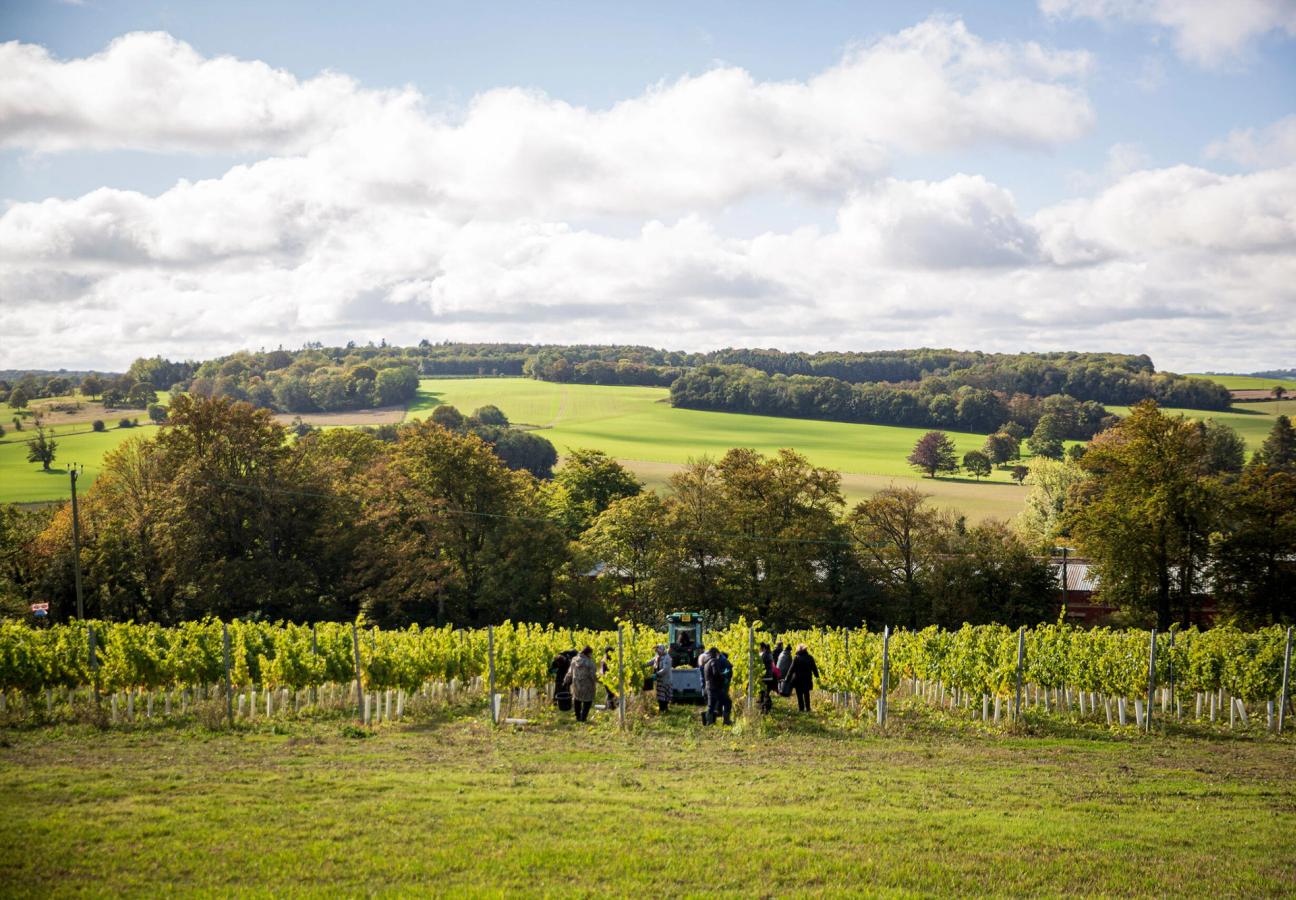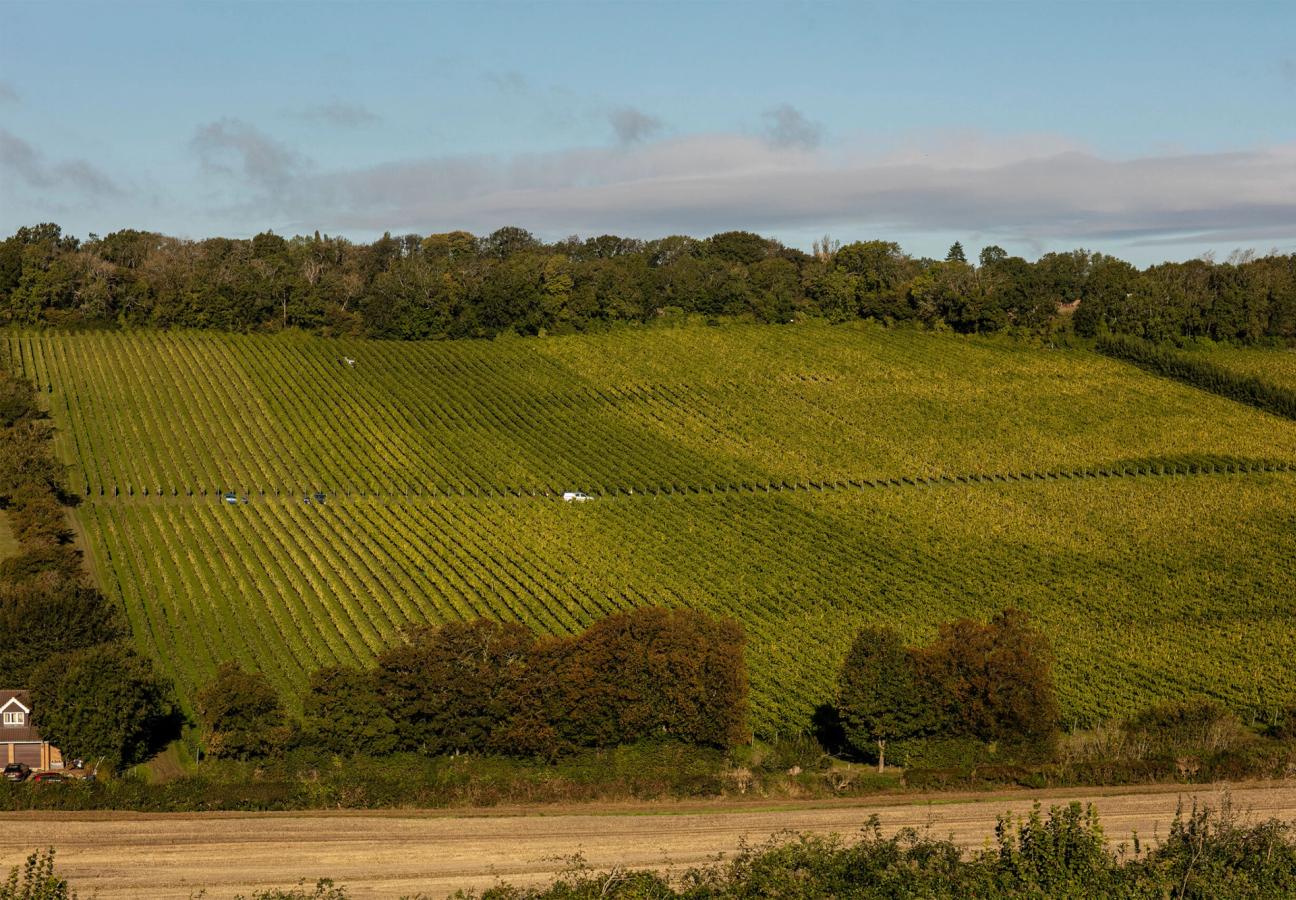

Wine of the Week: Simpsons White Cliff Blanc de Blancs 2018
These days, we should no longer be comparing the best English wines to Champagne – such creations stand on their own two feet, including this bottle from Kent
Words: Guy Woodward
There are several destinations in the world – namely Greece, Uruguay and Tasmania – whose wines have improved so markedly over the last two decades that they’ve been propelled onto the global stage as a result. The country that has most recently gone from a near standing start to becoming widely renowned for a singular wine style – and arguably the first since New Zealand sauvignon blanc took the world by storm during the 1980s – is England and its increasingly popular sparkling wine.

I remember the first English-wine tasting I ever attended, back in 2003, on a wet Tuesday afternoon at a provincial winery in Kent, which seemed to double as the village hall. It was a sorry affair. My abiding memory is the sales of themed tea towels, embroidered with the names of all the Kent wineries (there weren’t many).
15 years later, when Nyetimber – arguably England’s most famous winery – launched its 1086 prestige cuvée, it did so at The Ritz hotel, and priced the wine to compete directly with the top bottles of Champagne. This summer, it backed up its ambition by hosting ‘The Nyetimber Challenge’ at 67 Pall Mall, the St. James’s members club for oenophiles, where the label pitched itself confidently by having it blind-tasted alongside Dom Pérignon; Krug; and the wine that overtook it as England’s most expensive, Gusbourne’s £195 Fifty One Degrees North.

Today, there wouldn’t be enough room on those tea towels to list all the Kent wineries that have sprung up over the past 20 years. The county is now home to 1,000 hectares of vines, which represent a quarter of all vines in the UK, and the total number of plantings is up almost 75 per cent in five years. And though there has been a lot of industry talk recently about the burgeoning quality of English still wines (Essex rosé is the next big thing, allegedly), it is English fizz that still rules the roost. Around 70 per cent of plantings are given over to the three varieties – chardonnay, pinot noir and pinot meunier – that are blended together to make sparkling wine in the same style as Champagne.
Champagne is the most obvious benchmark against which to compare English fizz, not just in style and make-up, but also price. Of course, because of the economies of scale at play, the big French houses, unlike the English, are often able to discount their wines to a fairly competitive price point. On the flipside, though, with wines from this side of the Channel, you are often getting a more boutique product made in a more focused, hands-on fashion of increasing quality and precision. And, more importantly, the vintage wines (as opposed to the largely non-vintage wines – made from a blend of years – that are the stock-in-trade of the big-name Champagnes) tend to be sold at prices that match up well to their French counterparts.
The key feature of English sparkling wine is its pronounced acidity – fresh and racy say its fans, green and underripe say its critics. After sampling a host of wines at the generic Wine GB tasting this month, it’s true that this signature ‘bite’ means you wouldn’t necessarily want to drink English fizz all night. But, one wine that stood out for offering that extra roundness and creaminess that we often associate with fine Champagne was the Simpsons White Cliff Blanc de Blancs 2018. A proportion (20 per cent) of the wine is aged in oak, while the subsequent blend spends three years in bottle on its ‘lees’ (the yeast deposits) before release, all of which lends appealing toasty, brioche notes to its inherent citrus and apple tones.
The founders of the estate, Ruth and Charles Simpson, started off making wine in France, in the Languedoc. They moved back to the UK, in 2012, to plant vines in Kent. Perhaps they picked up some French savoir-faire along the way. At another 67 Pall Mall blind-tasting this month, attendees picked out Simpsons’ Roman Road as their favourite chardonnay among a raft of acclaimed bottlings, including those from Burgundy, Australia and California.
In truth, though, we should no longer be comparing the best English wines to Champagne or anywhere else. These days, the wines stand on their own two feet.
Want more wine content? Read our review of La Rioja Alta, Gran Reserva 904…
Become a Gentleman’s Journal member. Find out more here.


